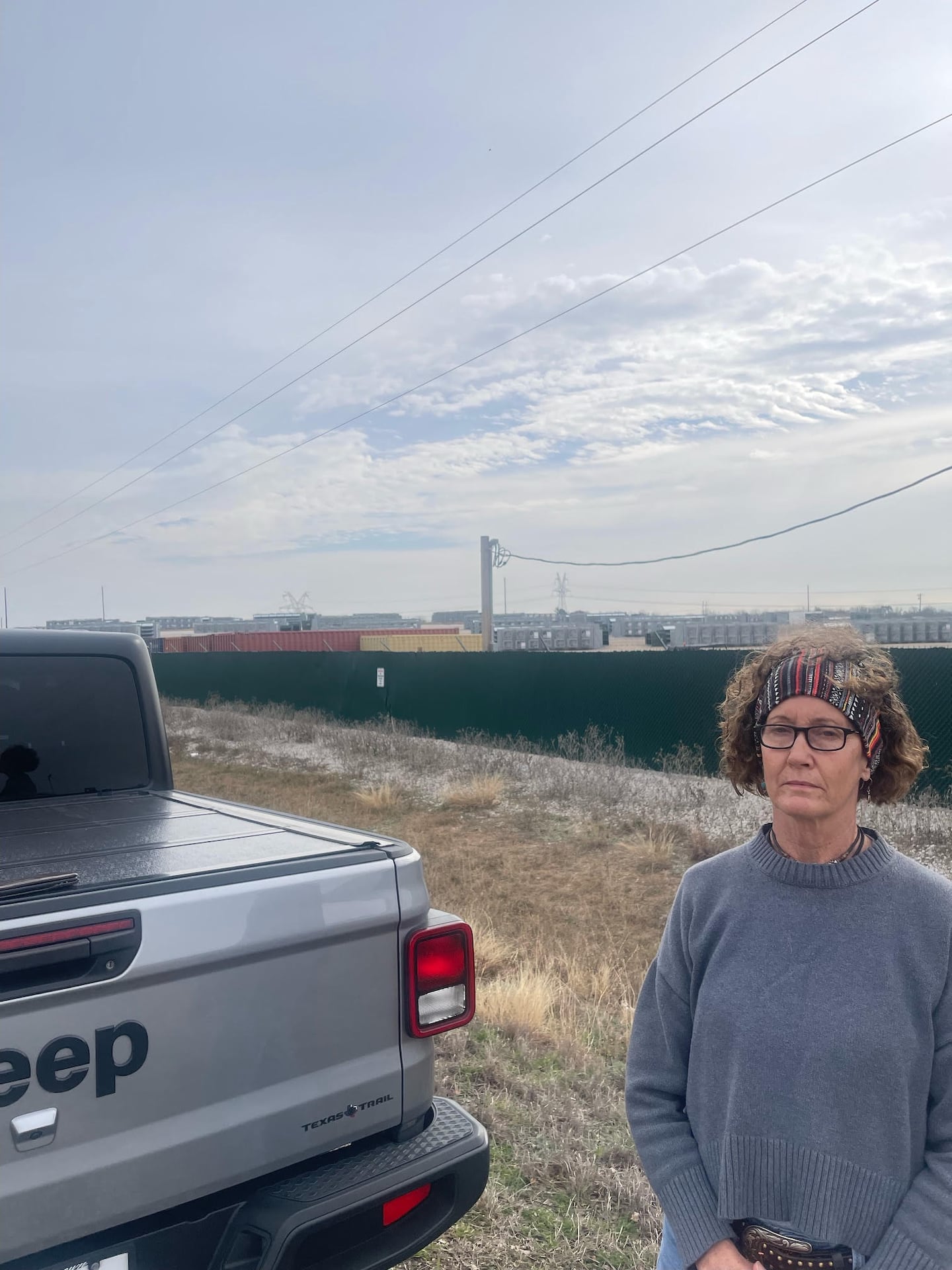- Jackie Sawicky tells DL News how Donald Trump’s election victory prompted the end of her three-year crusade.
- Bitcoin mining has drawn fire for consuming too much electricity and water in Texas.
- The industry shows no signs of ebbing in a state with cheap power.
And that’s all she wrote.
After almost three years of tireless and unpaid activism, Jackie Sawicky, the pugnacious Texan behind the Texas Coalition Against Cryptomining, is dissolving the 800-member association and lighting out for other territories.
Sawicky has voiced the anxiety and protests of many Texans irked by the noise of Bitcoin mining facilities, as well as the numerous tax breaks they enjoy and the strain they put on the Lone Star State’s electricity grid and water table.
While trying to put a stop to multibillion-dollar Bitcoin miners has been long, hard work, the incoming pro-crypto Trump administration is sure to make it even harder.
“I am tired of killing myself for people to turn around and completely undermine all of our work by voting for, supporting, upholding, and continuing the policies that got us here,” Sawicky told DL News.
Cheap energy
Her departure is good news for Riot and Marathon, big Bitcoin miners who have been forced to reckon with her group’s efforts to ban their operations in countless municipal meetings.
Yet Sawicky’s decision reflects the bullishness in the crypto industry following the advent of Bitcoin ETFs earlier this year and the election of Donald Trump, who has promised to end Washington’s crackdown on digital assets.
It’s Sisyphean to do all this work and be undermined by the people being harmed by this technology.’
— Jackie Sawicky
And in Texas, Bitcoin mining has exploded thanks to the state’s cheap energy, lucrative incentives, and a political agenda keen on supporting the industry.
Join the community to get our latest stories and updates
“When Governor [Greg] Abbott said ‘come to Texas, we’ve got a deregulated market in cheap energy,’ they all came,” Sawicky told DL News.
Hashrate exodus
Indeed, after Beijing banned mining in China in 2021 — where as much as 50% of the network’s hashrate was located — Texas was the beneficiary.
In 2024, much of that hashrate has reemerged in counties between Dallas and Austin.
The toll for the state is considerable, especially for an industry that is highly automated and doesn’t create the same level of economic activity as traditional manufacturing or service sector businesses.
The Electricity Reliability Council of Texas, the state entity that manages the electric grid, estimated that Bitcoin miners around the state use as much as 2,600 megawatts of electricity, or enough power to serve as many as 2.6 million homes.
Environmental concerns
That inordinate use of energy, with computers running nonstop to verify and record transactions on the blockchain demand, has drawn criticism from environmentalists, media, and researchers.
US Bitcoin miners generated as much carbon pollution as 3.5 million gasoline-powered vehicles, The New York Times reported in April. The industry also consumes enormous amounts of water to keep its machines cool.
Moreover, one Texas town reported a slew of health-related issues, including headaches and vertigo, caused by the noise from one of Marathon Digital’s mines.
“I’m not aware of anyone ever having medical issues from a Bitcoin mining site,” Charlie Schumacher, a Marathon spokesperson, told DL News in February. “If that’s the case, I’d love to see information on it. It’s super important for us to know.”
After issuing multiple citations for violating sound ordinance laws, Hood County residents filed a lawsuit against the firm in October, demanding it stop the ruckus or shut down.
Marathon did not immediately respond to a request for comment.
Cheryl Shadden, a Granbury resident, said that Sawicky helped organise Granbury’s campaign against Marathon.
“Connections, direction, publicity,” Shadden told DL News. “Jackie is the Queen of Anti-crypto in Texas.”

As the founder of TCAC, she’s helped galvanise anti-mining campaigns in several Texan counties, including Hood. The victories have been few and far between, however.
Take mining behemoth Riot Platform’s colossal growth as an object lesson.
As part of its plans to erect a 1,000-megawatt facility across 256 acres in the city of Corsicana, where Sawicky and her family live, Riot requested a tax abatement that would have saved it $14 million in taxes.
County commissioners denied the request in March. But in October, those abatements were eventually granted.
“Just by them getting those abatements before the election happened, you could see the writing was on the wall,” Sawicky said.
Riot did not immediately respond to request for comment.
Bitcoin soars
The US elections weren’t just a win for Republicans but for the wider crypto industry, too.
Texas Senator Ted Cruz, who won reelection, said he wants to turn the state into a Bitcoin oasis.
President-elect Donald Trump has waxed poetic about cryptocurrencies, once quipping on the campaign trail that if elected, he’d ensure that all Bitcoin was mined in the US.
In the week after he won the presidential election, Bitcoin soared more than 33%.
“It’s Sisyphean to do all this work for almost three years to be directly undermined by the people being harmed by this technology,” said Sawicky.
“They vote for it by voting for Ted Cruz and voting for Donald Trump.”
That’s why she’s finally decamping to Massachusetts.
“It is absolutely, 100% diametrically, opposite to Texas,” she said.
Liam Kelly is a Berlin-based DL News correspondent. Got a tip? Email at liam@dlnews.com.




